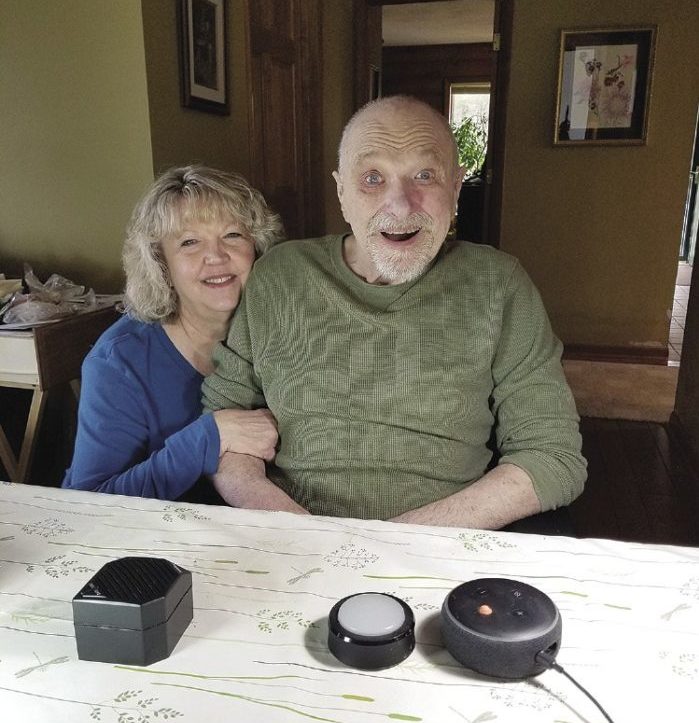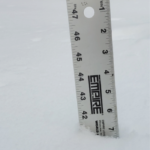A few miles north of the Duluth harbor there is a lighthouse, though not the sort of lighthouse typically associated with the shores of Lake Superior. This unique lighthouse is the Lighthouse Center for
Vision Loss.
The Lighthouse Center for Vision Loss, or LCVL for short, is a non-profit organization that provides tools, training and support for individuals who suffer from vision loss and other challenges to independence. The organization and its mission have evolved over the years, though its commitment to fostering vibrant lives for people with vision loss has remained strng throughout its existence.
At its inception in 1919, the LCVL—originally known as the Lighthouse for the Blind before changing its name in 2011 to better reflect the fact that most of its clients are not completely blind—primarily served the vision loss community by providing employment opportunities at its workshop in Duluth. In addition to the small salary that these jobs provided, the workshop served as an invaluable space for folks to socialize and build community, something equally if not more important for the vision loss community.
Over the years, individuals working at the LCVL’s workshops produced a wide variety of products such as rugs, snowshoes and pillow cases, and were trained in technical services like restringing tennis rackets, packaging nails and tuning pianos. During the height of the Gulf War, the LCVL’s manufacturing operation produced roughly 2.5 million rolls of toilet paper per month, an impressive feat for any
organization.
However, as the needs of the vision loss community evolved, so too did the services provided by the Lighthouse Center for Vision Loss. In 1999 the LCVL ceased its manufacturing operations, committing all of its resources instead to its impressive offering of services that focus on providing clients with the tools and skills they need to succeed and live vibrant lives on their own.
Today, the Lighthouse is Minnesota’s most comprehensive vision rehabilitation center, servicing individuals of all ages from across the state in a variety of ways, depending on each individual’s unique needs.
“We are serving people of all ages here at the Lighthouse, literally seven to 97,” says Mary Junnila, executive director at Lighthouse Center for Vision Loss. “We do this by offering a variety of programs targeting the needs of folks from different walks of life.”
In terms of youth programming, the LCVL offers their Lighthouse Transition Program to 14-21 year olds who have visual impairment or blindness and are still in school. Participants in the program develop important skills in technology, reading, writing, and living independently, all while having fun with a group of peers dealing with similar challenges to independence.
“Even though we are a little organization in the Northern corner of the state, we’re actually serving more teens than any other program in Minnesota,” says Junnila. “Last year we served 34 transition age youth out of the 120-140 kids estimated by the Department of Education to meet that criteria. We literally go across the state picking students up to bring them to our programs.”
To help working age adults, the Lighthouse works with state services for the blind, while also offering occupational therapy services for anyone of any age.
“Our services go all the way from sponsoring support groups, to working with an individual who might require a thousand hours or more of training,” says Junnila. “For working age adults, the number of individuals struggling with vision loss are fairly low, but the consequences can be extremely high. Only one-in-three working age adults with vision loss actually have a job.”
For the one-in-five older adults struggling with vision loss, the LCVL has been doing a lot of work with programs involving technology. Their Technology & Me initiative is specifically tailored for adults age 55 and older, including those without vision loss. The Technology & Me program includes one-on-one trainings, a technology help hotline, device loans and demonstrations, and drop-in hours.
The LCVL will also be hosting a number of Tech Cafes in the Duluth area. The Tech Cafes will be a series of informal get-togethers, some of them literally in cafes, where people can bring their own technology and questions to learn new ways in which technology can help them live safer, more vibrant lives.
“I think its common knowledge that technology has huge potential to do things that weren’t possible before to keep people safe and independent and improve quality of life,” says Junnila. “The challenge is, especially with older adults but not just older adults, is it’s hard for folks to know how to utilize this new technology.”
With such a wide array of services provided by the LCVL, one of the biggest challenges they face is simply getting the word out and reaching those that can benefit from their services.
When asked about what people can do to help further LCVL’s mission, Junnila responded; “While we’re always looking for volunteers, the main message is if you know someone with vision loss or other challenges to independence, keep us in mind. We can travel to you, and it might be through occupational therapy, might be in collaboration with state services for the blind, or it might be through our technology program, but there is a lot that can be done to help, so don’t give up and spread the word!”
For more information, visit: lcfvl.org.





